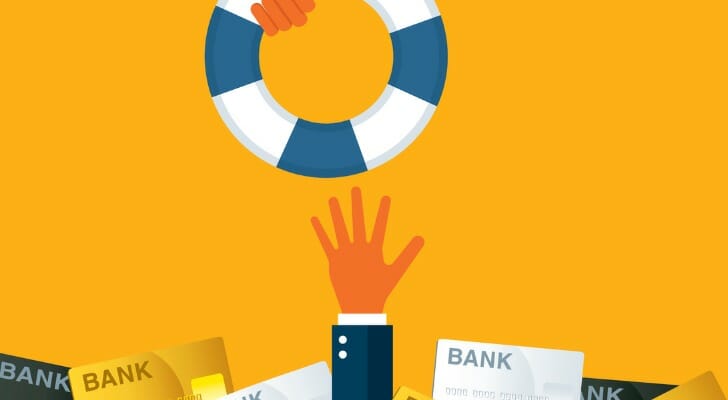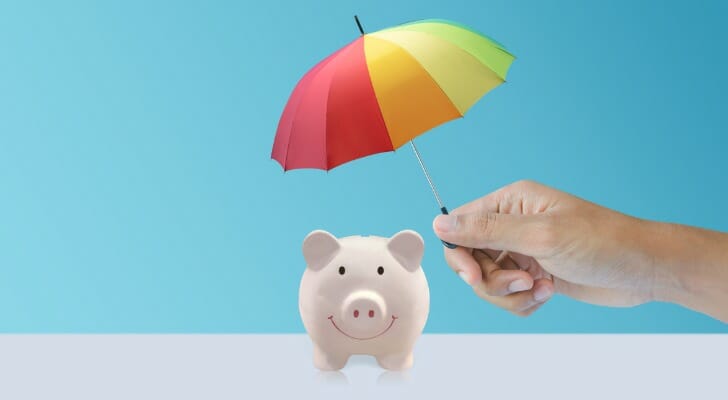Economic Injury Disaster Loans (EIDLs)
The Small Business Administration’s (SBA) Economic Injury Disaster Loan (EIDL) Program can provide as much as $2 million of financial support to small businesses and private non-profit organizations that encounter...Thursday, April 2nd 2020, 2:11 pm
By Sam Lipscomb, CEPF®
The Small Business Administration’s (SBA) Economic Injury Disaster Loan (EIDL) Program can provide as much as $2 million of financial support to small businesses and private non-profit organizations that encounter certain declared disasters. The Coronavirus Aid, Relief, and Economic Security (CARES) Act expanded the EIDL Program to make it easier for borrowers dealing with the COVID-19 pandemic to get a loan. The application process is fairly simple, as it’s available directly through the SBA’s website.
What Is an Economic Injury Disaster Loan (EIDL)?
An EIDL is a loan of up to $2 million with a maturity of up to 30 years that’s designed to help carry businesses through tough times caused by a disaster, such as the COVID-19 pandemic. These funds are intended to cover payroll and other operating expenses that the business could have otherwise met in a non-disaster economy. Funds cannot be used for refinancing, making loan payments on other federal debts, to repair physical damages, to pay IRS tax penalties or to pay out dividends.
While loan amounts may range up to $2 million, specific loans depend upon the amount of economic injury that a business has suffered. This amount is determined by the SBA on a case-by-case basis after businesses apply.
Interest rates on EIDLs can be as high as 3.75% for companies and 2.75% for nonprofits. Principal and interest payments of EIDLs can be deferred for up to one year. Typically, EIDLs are available to businesses and private nonprofits.
Emergency EIDL Grants and AdvancesThe CARES Act also included $10 billion worth of funding for the SBA to provide businesses with quickly accessible advances of $10,000. Businesses that use these funds to help pay for paid leave, payroll, COVID-19 related costs and more will see the advance become a grant. Once this happens, the business will no longer need to pay back the money they received. Emergency EIDL grants are available within three days for those that apply with the SBA.
Grants can be used by small businesses for a number of purposes. These include providing paid sick leave, payroll, meeting production costs, paying rent or mortgages on business spaces and anything else to help with the continuity of the business.
In order to be eligible, companies must have been in business by Jan. 31, 2020. These grants are available to all businesses and organizations that are eligible for EIDLs.
Who Is and Isn’t Eligible for an EIDL?In the past, EIDLs have been available only to small businesses and private nonprofit organizations. They are also accessible on a solely case-by-case basis to businesses affected by more specific business disasters in a particular state or city.
As a result of the COVID-19 pandemic and the CARES Act, EIDLs are now available to small businesses with 500 employees or less, nonprofits, tribal businesses, cooperatives, employee stock ownership plans (ESOPs), sole proprietors and independent contractors.
There are some specific things that may disqualify a business for EIDL eligibility. Applicants will be turned away if they:
- Are engaged in illegal activities
- Are an agricultural enterprise
- Derive revenue from sexual depictions or products
- Derive more than a third of their annual revenue from gambling activities
- Are in the business of lobbying
- Are a government entity
Applying for an EIDL is quite straightforward. You’ll need to visit the SBA website first and note what type of business you’re operating. You then need to verify that you aren’t disqualified for a loan based on the eligibility criteria above.
Following this, applicants must compile and enter basic information about their business, such as operating expenses, revenue, business names, contact information and employee information. You’ll then note whether you’d like to receive a grant, along with listing your bank account details. The SBA typically takes 18 to 21 days to process the loan and then two to five days to disperse the funds.
Effect of the Coronavirus on EIDLsThe CARES Act was signed into law by President Trump on March 27. This bill provides economic stimulus in a ton of ways, including for EIDLs. The bill boasts $562 million to ensure that the SBA has the resources to continue to distribute EIDLs to affected businesses.
Loans are still capped at $2 million and interest rates and deferment periods remain the same. However, organizations that are eligible to receive an EIDL have been heavily expanded.
The Paycheck Protection Program (PPP) and EIDLsThe Paycheck Protection Program (PPP) has $350 billion worth of funding allocated by the CARES Act. It provides eligible businesses, sole proprietors, independent contractors and self-employed individuals with no-interest loans of 2.5 times their average monthly payroll costs (excluding salaries of $100,000 or more), up to $10 million.
The PPP will forgive businesses up to eight weeks worth of its payroll costs, rent mortgage interest and utilities. Loans terms include a 1% interest rate that the government covers, a two-year maturity period and a six-month payment deferral.
The PPP ties into the EIDL program because businesses and organizations that receive EIDLs before June 30, 2020 will have the option to refinance their EIDL into a PPP loan. If the business received an emergency EIDL grant, that amount would also be subtracted from the amount forgiven through the PPP.
Bottom LineEconomic Injury Disaster Loans, or EIDLs, are built to help businesses and organizations get through any type of economic crisis or disaster. They allow businesses to continue functioning as they weather an economic storm.
In the case of the global coronavirus pandemic, the EIDL program now serves as an even more robust program. The development of the emergency EIDL advance and grant, along with the ability for borrowers to refinance their EIDLs into PPP loans, can help to create a climate where more businesses are able to keep their doors open and employees on payroll.
Tips for Small Business Planning- Many financial advisors specialize in working with – and creating financial plans for – small business owners. Finding a financial advisor that fits your needs doesn’t have to be hard. SmartAsset’s free tool can match you with financial advisors in your area in just 5 minutes. Get started now.
- To ensure that you know every program that’s available for you and your business, check out SmartAsset’s roundup of resources for small businesses dealing with the coronavirus crisis.
Photo credit: ©iStock.com/10255185_880, ©iStock.com/sorbetto, ©iStock.com/shutter_m
The post Economic Injury Disaster Loans (EIDLs) appeared first on SmartAsset Blog.
Information contained on this page is provided by an independent third-party content provider. Frankly and this Site make no warranties or representations in connection therewith. If you are affiliated with this page and would like it removed please contact pressreleases@franklymedia.com
More Like This
April 2nd, 2020
December 13th, 2024
December 13th, 2024
December 13th, 2024
Top Headlines
December 13th, 2024
December 13th, 2024
December 13th, 2024
December 13th, 2024










